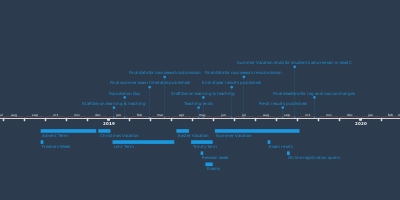History of psychology
Category: Other
Updated: 27 Oct 2018
Contributors

Created bySoneil Gonez
Attachments
Events
Plato suggested that the brain is the mechanism of mental processes.Aristotle suggested that the heart is the mechanism of mental processes.Franz Mesmer detailed his cure
for some mental illness, originally
called mesmerism and now known as hypnosis.Philippe Pinel released the first mental
patients from confinement in the first
massive movement for more humane
treatment of the mentally ill.Franz Gall wrote about phrenologyErnst Heinrich Weber published
his perception theory of ‘Just
Noticeable DIfference,’ now known
as Weber’s Law.Phineas Gage suffered brain
damage when an iron pole pierces his brain.
His personality was changed but his intellect
remained intact suggesting that an area of the
brain plays a role in personality.Charles Darwin published the On the Origin of Species,
detailing his view of evolution and expanding on the theory
of ‘Survival of the fittest.’French physician Paul Broca discovered an area in the left frontal
lobe that plays a key role in language development.Sir Francis Galton, Influenced by Charles Darwin’s ‘Origin of the Species,’ publishes ‘Hereditary Genius,’
and argues that intellectual abilities are biological in nature.Carl Wernicke published his work on the frontal lobe,
detailing that damage to a specific area damages the ability
to understand or produce languageG. Stanley Hall received the first American Ph.D. in psychology.
He later founded the American Psychological Association.Wilhelm Wundt founded the first formal laboratory of Psychology at the University of Leipzig, marking the formal beginning of the study of human emotions, behaviors, and cognitions.The first laboratory of psychology in America is established at Johns Hopkins University.Herman Ebbinghaus introduced the nonsense syllable as a means to study memory processes.Sigmund Freud began performing therapy in Vienna, marking the beginning of personality theory.The term “Mental Tests” was coined by James Cattell, beginning the specialization in psychology now known as psychological assessment.Sir Francis Galton developed the technique known as the correlation
to better understand the interrelationships in his intelligence studies.William James published ‘Principles of Psychology,’ that later became the foundation for functionalism.New York State passed the State Care Act, ordering indigent mentally ill patients out of poor-houses
and into state hospitals for treatment and developing the first institution in the U.S. for psychiatric research.Periods
Ancient Greeks (750BC - 146BC)
sought knowledge, used reasoning
to establish truthThe dark agesRenaissance: the rise of humanism,
flowering of arts & literatureEnlightenment: The beginnings of modern science
Comments